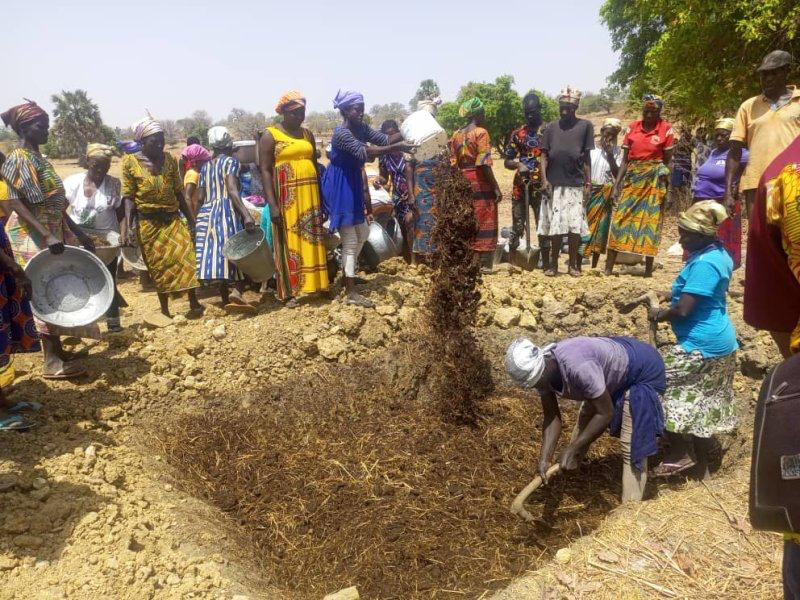EIGHTY women, largely vegetable farmers in Yakoti, a farming community in the Upper East Region’s Nabdam District, have benefited from a day of training on how to make organic compost for their farming activities. Maaltaaba Peasant Women Farmers’ Cooperative (MAPEWFAC), a non-governmental organization, conducted the training with the goal of empowering the women to make their own compost and avoid using fertilizer in their farming activities (NGO).
Widows, single mothers, and young mothers were the beneficiaries of the programme. The women were required to make their own compost and apply it to their farms when growing onions, tomatoes, cabbage, peppers, and carrots, among other crops, which will boost agricultural productivity. In addition, the NGO has received financing from the Forest and Farm Facility (FFF) of the Food and Agriculture Organization (FAO) to assist women in tree planting in order to reduce the consequences of climate change. The cooperative has also purchased 15 acres of land and built a mechanized borehole to help women peasant farmers plant economic trees and increase their food production.
Preparation
Cow dung, poultry manure, ashes, dried grass, and water are used to make the organic compost. To begin, a shallow trench is dug, then the cow dung, poultry manure, ashes and dry grass are combined with water.
It’s then poured in five layers into the hole and left to mature for three months. The compost is dug out of the trench after three months and is ready to be spread to the veggies.
Restoring the forest
Lydia M. Miyella, the NGO’s founder, told the Daily Graphic in an interview that their assistance included providing water to the ladies who would water trees in order to help restore the forest and combat climate change.
“In fact, the water we provide for the peasant women farmers will be used for three purposes: to water trees, irrigate their farms, and for domestic purposes,” she explained.
She explained that the NGO’s goal was to encourage women to engage in year-round farming in order to grow enough veggies for the market and earn the necessary revenue to improve their life.
Beneficiaries
Baninima Tobil, a 10-year farmer, said the training was eye-opening because she was well-equipped with the skills and knowledge to produce her own compost for use on her farm instead of spending so much money on fertilizer.
“The price of fertiliser today is unbearable for the already impoverished women farmers,” she said, adding that the training she received will enable her to make her own compost in the quickest period possible and apply it to her field.
Eunice Dong, another beneficiary, said that by using organic compost on her farm, she would be able to boost her crop yield and earn more money to help her family improve their level of living.
“We will be able to get the natural taste of the crops as well as improve the health of consumers with the application of organic compost on the crops,” she said, “in contrast to fertiliser-induced crops, which have a lot of bad health consequences on consumers”.

